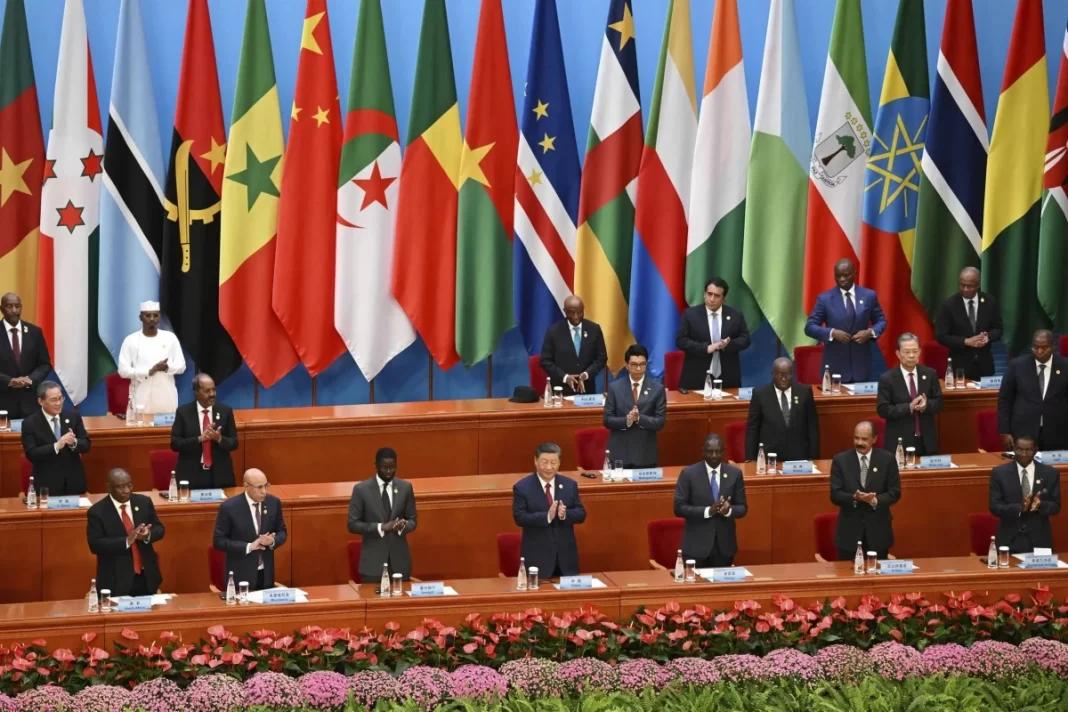Last week, Beijing hosted the ninth Forum on China-Africa Cooperation (FOCAC), a major event bringing together over 50 African leaders. Antonio Guterres, the Secretary-General of the United Nations, was also in attendance. This summit is part of China’s long-standing efforts to strengthen ties with Africa, as China’s influence grows in the Global South.
The Significance of FOCAC
While FOCAC only meets every three years, it is crucial in shaping China-Africa relations. The conference this year emphasised China’s standing as a dependable ally of the African continent. China’s commitment to helping these nations with development projects stands in contrast to Western countries, which have often treated Africa as an afterthought.
For many African leaders, China represents a partner that doesn’t interfere in their internal politics. This has earned China significant goodwill across the continent. The West, in contrast, has been seen as more judgmental and demanding, often pushing countries to take sides in international disputes.
China’s Consistent Presence in Africa
China’s engagement with Africa is not new. For over five decades, Beijing has been a constant and reliable presence on the continent. Unlike Western countries, China has shown steady interest in Africa’s growth, even during challenging political times.
One of China’s key advantages is its willingness to keep working with African countries, no matter the political situation. For example, despite a coup in Niger in 2022, China continues to build a 2,000 km oil pipeline from Niger to Benin. Similarly, after a coup in Guinea in 2021, China is still developing a 600 km iron ore rail line.
New Investments in Africa
At this year’s summit, President Xi Jinping announced $50 billion in new investments for Africa over the next three years. While China has traditionally focused on large infrastructure projects, such as building roads and railways, Xi signaled a shift toward green energy. This includes investing in electric vehicle manufacturing and possibly even nuclear energy.
This shift is significant because it could help reduce China’s massive trade surplus with Africa. Last year, China exported goods worth $173 billion to Africa, but imported only $109 billion. By investing in African industries like electric vehicles and nuclear power, China could help balance this trade gap.
Addressing African Debt
One of the most pressing issues discussed at FOCAC was Africa’s rising debt. Many African nations owe large sums of money, and their debt payments are becoming unsustainable. Twenty-four African countries have debt levels higher than 60% of their GDP. Some, like Zambia, have already defaulted on their loans.
China has faced criticism for its role in Africa’s debt crisis, with some accusing it of “debt-trap diplomacy.” However, Beijing argues that its investments are essential for Africa’s long-term development. During the summit, many African leaders quietly held talks with Chinese officials about restructuring their debt.
China’s Soft Power in Africa
China’s approach has earned it significant soft power not just in Africa but globally. Its consistent support of African countries in international forums, like the United Nations, has made it a key player in the Global South. This is especially important as the world’s economic and diplomatic balance shifts away from the traditional powers of the West.
The Future of China-Africa Relations
FOCAC shows that China’s commitment to Africa is not just about trade and investment. It is part of a broader strategy to shift the global power balance. While some critics may see the China-Africa summit as more show than substance, the long-term impacts are undeniable.
Africa is changing as a result of China’s partnerships and investments there. They are also strengthening China’s position as a leader in the Global South, challenging the traditional dominance of Western powers. As this relationship deepens, it will continue to have far-reaching consequences for both Africa and the world.

